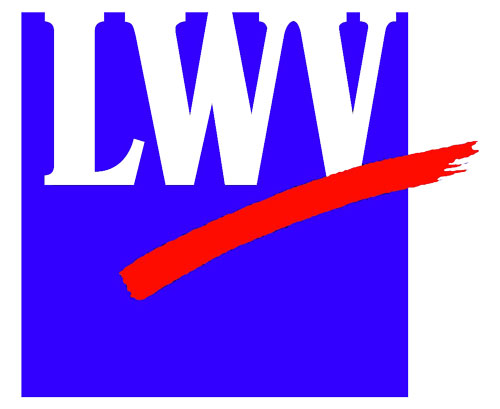Blog
The League Of Black Women

The League of Black Women is not in the Marvel-verse, but you will marvel. These women helped save the world through poetry, advocacy, ministry, activism, and flight. One even escaped the atmosphere.
Bessie Coleman- No league would be complete without a pilot for take-off. Called “The Only Race Aviatrix in the World,” Bessie Coleman scrapped her way to every height she achieved. As a teen, she worked with her mother picking cotton and washing laundry to pay her way into what is now Langston University. When her money ran out, she moved to Chicago and worked as a manicurist while her brothers served in WWI. Her brothers teased her when they returned saying that French women were allowed to fly planes. She took the challenge and French classes to get accepted to flight school in France. When she returned to the US, she hoped to open her own flight school and buy her own plane. To earn the funds, she performed and spoke at churches, schools, and theaters, always refusing to speak in segregated places. Tragically, she died young while testing a young mechanic learning to fly. Having earned her fame and a reputation for standing up for her beliefs, Ida B Wells performed her funeral service.
Dorothy Height- A true League of Women Voters hero, Dorothy Height graduated from New York University- she had been accepted to Barnard, but when they realized she was an African-American she wasn’t allowed to attend.- As a social worker, she joined the staff of the Harlem YWCA and helped to integrate the YWCA nationwide. She moved on to the National Council of Negro Women (NCNW), working to end lynching and addressing the inequities in the criminal justice system. Under her presidency of the organization, the NCNW worked on voter registration in the South, which had been gutted from intimidation, poll taxes, and bogus literacy tests. Height regularly counseled Eleanor Roosevelt, Dwight Eisenhower, and Lyndon Johnson. She also helped organize the March on Washington, and with Anna Arnold Hedgemen, persuaded the men to allow at least one female speaker.
Jane Bolin- Bolin notched at least three “firsts” in her achievements, including the first Black (and American Indian) woman to earn a law degree from Yale (1931), the first NYC assistant corporate council (1934), and the first Black female judge in the US (1939). But she didn’t “fuss” about the firsts; she focused on the work. Bolin worked with Eleanor Roosevelt to reduce juvenile crime. She ensured that private child care agencies receiving public funding could not discriminate based on race or ethnicity and ended the assignment of probation officers based on race or religion.
Ella Baker- “There would not be a SNCC without Ella Baker,” reads the leading line from SNCC, the Student Non-violent Coordinating Committee. Baker organized the first conference at Shaw University in Raleigh, NC. She appealed to Dr. King for the seed money to hold the conference. Though Dr. King hoped it would become a wing of the Southern Christian Leadership Conference, she encouraged the students to envision their own organization. She believed in organizing people to lead themselves. SNCC adopted non-violent direct action, and believed, like Baker, that voting is a key to freedom. She remained active in the Civil Rights Movement until she died in 1986.
Pauli Murray- Orphaned after her mother’s cerebral hemorrhage and her father- a graduate of Howard University, teacher, principal in the Baltimore school system, was beaten to death by White guard in the state hospital, Anne Pauline Murray moved to North Carolina to live with her grandparents. She graduated high school at fifteen. After refusing to attend segregated colleges, she moved to New York City to attend Hunter College. While there, she befriended Langston Hughes and met W.E.B. Dubois. She wrote poetry and changed her name to Pauli. Trying to support herself through the Depression, she applied to a graduate program at UNC-Chapel Hill, but they denied her entry due to race. While fundraising for the Workers Defense League she wrote FDR about caring more about fascism than racism. Her letter caused Eleanor Roosevelt to write back, befriending her. She ended up attending
Howard University, organized sit-ins in Washington DC, and having been denied admittance to Harvard, went to UC-Berkley School of Law. She wrote often about “Jane Crow” discrimination, catching the eye of the Methodist Church, which was seeking to help its parishes disregard local segregation laws. Murray went on to practice law, found and then leave the National Organization of Women. After years of teaching, she finally became the first African American woman to be ordained an Episcopal priest.
Of the thousands of DC and Marvel characters in the vault, a few like Groot, emerge to become beloved heroes. Millions of amazing women are not covered in these lines or textbooks. What marvels await if you crack the vault, expand your universe, and learn and share the stories of heroes that speak to you. For starters, follow a Black History Everyday post, read books by authors different from your usual, and seek the friendship of people different from you.
Honorable mentions: Octavia Butler who has been awarded Hugo and Nebula awards for science fiction. Her book Parable of the Sower is a prophetic voice to the present moment. Mae Jemison, Sister Rosetta Tharp, Mary McLeod Bethune, Claudette Colvin, Audre Lorde, Shirley Chisolm, Marsha P Johnson, and if you are a proper Hoosier, Madame C J Walker.
The League of Women Voters is a nonpartisan, multi-issue political organization which encourages informed and active participation in government. For information about the League, visit the website www.lwvmontcoin.org; or, visit the League of Women Voters of Montgomery County, Indiana Facebook page.
